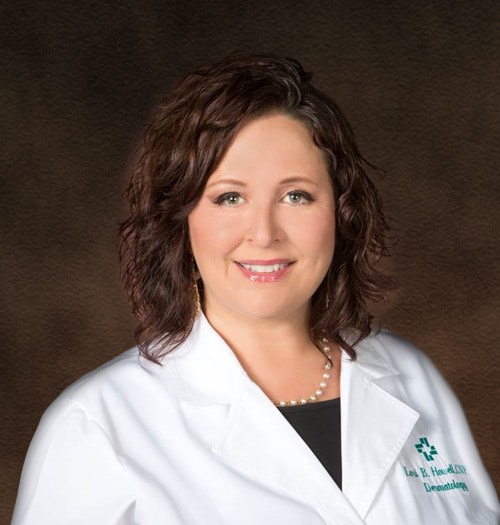Skin Cancer and Screenings
We strive to educate patients with strategies and tips for skin cancer prevention. We believe prevention strategies and regular skin screenings are the first line of defense in the battle against skin cancer. We encourage all our patients to schedule regular skin screenings to monitor any irregularities or spots that may occur.
Types of Skin Cancer
Understanding the types of skin cancer can help patients better grasp the importance of prevention and early detection. The three most common types include:
- Basal Cell Carcinoma: The most common type, basal cell carcinoma is typically slow-growing and less likely to metastasize. However, if left untreated, it can enlarge and penetrate deeper tissues such as cartilage, bone and muscle.
- Squamous Cell Carcinoma: The second most common form, squamous cell carcinoma carries a higher risk of spreading and is more likely to appear in burn scars or areas exposed to chronic irritation.
- Melanoma: Although less common, melanoma is the most dangerous type. It originates in melanocytes (cells that produce pigment) and can appear in a mole or other pigmented tissues. Melanoma requires immediate attention as it can spread more aggressively than other types.
Skin Cancer Signs
One of the most effective tools for recognizing potential skin cancer is the ABCDE rule. This simple guide outlines the key characteristics to look for when examining moles or spots on your skin. Paying attention to these changes can help detect melanoma early, when it is most treatable.
- A – Asymmetry: One half of the mole does not match the other
- B – Border: Irregular, ragged, notched or blurred edges
- C – Color: Color is not uniform and may include different shades of brown, black, pink, red, white or blue
- D – Diameter: Spot is larger than six millimeters (about the size of a pencil eraser), though melanomas can be smaller
- E – Evolving: Any change in size, shape, color or symptoms such as itching or tenderness
Skin Cancer Screenings
Regular skin cancer screenings play a vital role in identifying suspicious moles, lesions or changes in the skin that may indicate cancer. These screenings allow dermatologists to catch issues before they progress, offering patients the best chance for effective treatment and recovery.
Even if no visible signs of concern are present, a professional skin exam can help uncover early indicators that are easily overlooked. Screenings are especially important for individuals with a history of sun exposure, fair skin or a personal or family history of skin cancer. Prioritizing these exams is a simple but powerful step in protecting your health.
During a skin cancer screening, your dermatologist will conduct a thorough, head-to-toe examination of your skin. The goal is to identify any moles, growths or spots that appear unusual in shape, color, size or texture. Providers often use a tool called a dermatoscope, which magnifies and lights the skin to give a clearer view of specific lesions. This helps distinguish harmless spots from those that may require further evaluation.
If anything concerning is found, the provider may photograph the area for monitoring or perform a biopsy, which involves removing a small sample of skin for laboratory analysis. The entire screening is typically quick and noninvasive, and it does not require any preparation. For patients with a history of skin cancer or other risk factors, these screenings may be recommended annually or more frequently.
Skin Cancer Treatment
If our providers identify an area of concern, a biopsy will be performed to confirm the diagnosis. Because each case is unique, the treatment for skin cancer varies depending on the type of tumor, its location, size, depth and other factors.
Some of the treatment methods we offer include:
- Cryosurgery: Freezing the cancer cells
- Electrodesiccation and Curettage: Using electrical currents to scrape away cancerous cells
- Topical Drugs: Application of chemotherapy or immune-boosting drugs to treat surface-level skin cancers
- Surgical Excision: Removing the tumor and surrounding healthy tissue to ensure complete removal
Each patient is different, and the best treatment plan is tailored to your specific needs. Our team will walk you through the treatment options and make sure you are fully informed about the next steps.


